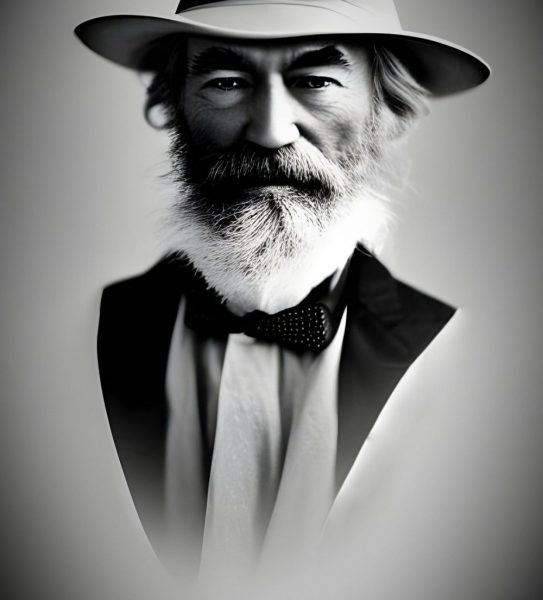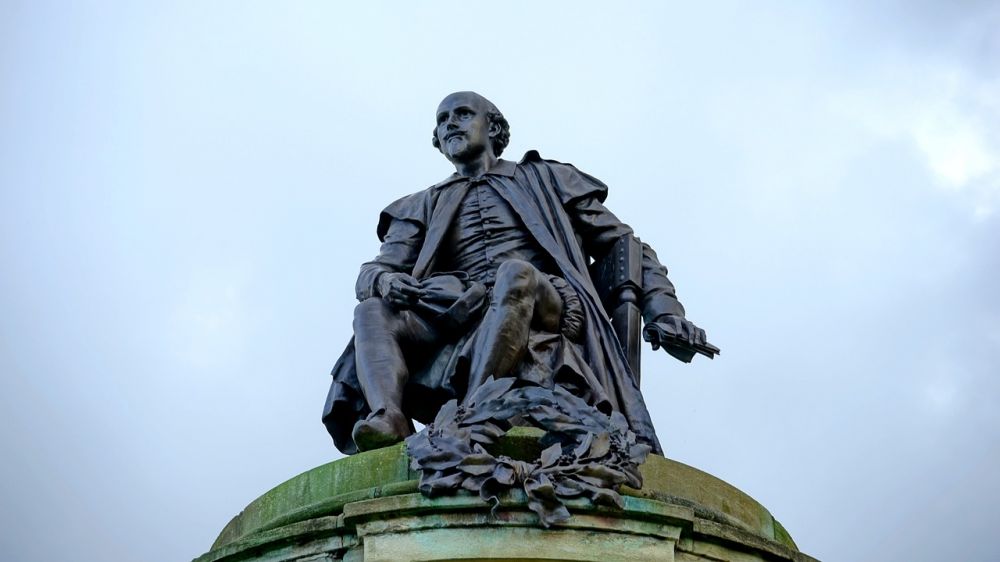Oscar Wilde: A Brilliant Mind in Art and Literature

Introduction:
When it comes to literature and art, few names stand out like that of Oscar Wilde. Born on October 16, 1854, in Dublin, Ireland, Wilde was a prominent playwright, novelist, poet, and essayist of the late 19th century. His wit, humor, and flamboyant personality made him an influential figure in the Victorian era’s literary and cultural scene. In this article, we will delve into Wilde’s life, his contributions to the literary world, and his enduring legacy.
Section 1: A Glimpse into Oscar Wilde’s Life:

Oscar Wilde was born into an intellectual family, with his father being a renowned doctor and his mother a poet and journalist. Wilde himself demonstrated exceptional talent from a young age and attended prestigious educational institutions such as Trinity College, Dublin and Magdalen College, Oxford.
Wilde’s distinctive appearance, which included his famous flamboyant dress sense and long hair, became synonymous with his personality. He was known for his sharp wit, eloquence, and ability to captivate audiences with his entertaining conversations. Wilde’s charm and charisma drew attention wherever he went, making him a popular figure in social circles.
Wilde’s Personal Life:
Wilde’s personal life was quite controversial. He married Constance Lloyd in 1884, and they had two sons together. However, his homosexuality became a source of trouble in an era where it was not accepted. It eventually led to his downfall and public disgrace, as he was convicted of “gross indecency” in 1895 and sentenced to two years of hard labor.
Despite the difficulties he faced, Wilde’s talent and creativity never wavered. Even during his imprisonment, he continued to write, producing some of his most powerful and introspective works.
Section 2: Evolution of Oscar Wilde’s Work:
Wilde’s literary career can be divided into two distinct periods: his early works and his later writings, which reflect his personal transformation.
Early Works:
During the 1880s, Wilde gained recognition for his poetry and essays, which showcased his distinctive writing style. He became a leading figure in the aesthetic movement known as “art for art’s sake,” advocating for art’s autonomy, detached from moral or political messages. Some of his notable works from this period include “The Happy Prince and Other Tales” (1888) and “The Picture of Dorian Gray” (1890).
Later Works and Transformation:
Following his release from prison, Wilde underwent a significant change in his writing style. He adopted a more introspective and philosophical approach, grappling with themes of morality, love, and forgiveness. Works such as “De Profundis” (1897), which was written during his imprisonment, and “The Ballad of Reading Gaol” (1898) showcased a deeper understanding of human suffering and redemption.
Wilde’s Final Years and Legacy:
In 1900, Wilde died at the age of 46 in Paris, leaving behind a remarkable body of work that continues to captivate readers to this day. His plays, including “The Importance of Being Earnest” and “An Ideal Husband,” have become timeless classics, renowned for their wit and satirical social commentary.
Wilde’s ability to blend comedy with profound insights into human nature cemented his place as one of the greatest playwrights in history. His works continue to be performed and studied worldwide, inspiring countless artists and writers.
Section 3: Oscar Wilde’s Impact on Art and Literature:
Oscar Wilde’s influence extends far beyond his literary contributions. He challenged societal norms and pushed artistic boundaries, becoming an iconic figure of his time. Through his satirical plays and witty writings, he critiqued the hypocrisies and pretenses of Victorian society, making him both admired and scorned by his contemporaries.
Wilde’s ideas on aesthetics and the importance of art in everyday life remain relevant today. He emphasized the power of beauty and creativity to elevate the human spirit and bring about social change. His belief that art should exist for its own sake, devoid of moral judgment, challenged traditional notions and opened doors for new artistic movements.
Conclusion:
Oscar Wilde’s brilliance as a writer and his provocative persona have made him an enduring cultural icon. His contributions to art and literature continue to be celebrated and studied, resonating with audiences across generations. Wilde’s ability to infuse his works with wit, humor, and profound insights has secured his place among the literary greats. As a playwright, novelist, poet, and essayist, Wilde’s genius has left an indelible mark on the world of art and literature, making him an inspiration for artists and collectors alike.
FAQ
What was the significance of Oscar Wildes personal transformation in his later works?
What were Oscar Wildes major contributions to literature and art?
Why is Oscar Wilde still relevant today?
Flere Nyheder
Saxofonist med dj: energi til bryllupper og klubnætter
Introduction: When it comes to literature and art, few names stand out like that of Oscar Wilde. Born on October 16, 1854, in Dublin, Ireland, Wilde was a prominent playwright, novelist, poet, and essayist of the late 19th century. His wit, humor, an...
06 november 2025
Den perfekte bryllupsfotograf til din store dag
Introduction: When it comes to literature and art, few names stand out like that of Oscar Wilde. Born on October 16, 1854, in Dublin, Ireland, Wilde was a prominent playwright, novelist, poet, and essayist of the late 19th century. His wit, humor, an...
30 oktober 2025
Hvordan du finder kunstprojekter i dit lokalområde
Introduction: When it comes to literature and art, few names stand out like that of Oscar Wilde. Born on October 16, 1854, in Dublin, Ireland, Wilde was a prominent playwright, novelist, poet, and essayist of the late 19th century. His wit, humor, an...
02 oktober 2025
Symbolik i klassisk og moderne billedkunst
Introduction: When it comes to literature and art, few names stand out like that of Oscar Wilde. Born on October 16, 1854, in Dublin, Ireland, Wilde was a prominent playwright, novelist, poet, and essayist of the late 19th century. His wit, humor, an...
02 oktober 2025











